Audi Q6 e-tron vs Volvo EX90 - Forskelle og priser i sammenligning
Sammenlign ydelse (490 HK vs 680 HK), bagagerum og pris (497600 kr. vs 673800 kr. ) på et øjeblik. Find ud af, hvilken bil der er det bedste valg for dig – Audi Q6 e-tron eller Volvo EX90?
Når det handler om økonomi i hverdagen, viser de to modeller interessante forskelle.
Audi Q6 e-tron har en klart synlig prisfordel – den starter allerede ved 497600 kr. , mens Volvo EX90 koster 673800 kr. . Forskellen er omkring 176235 kr..
I elforbrug har Audi Q6 e-tron fordelen: med 15.60 kWh pr. 100 km er den noget mere effektiv end Volvo EX90, som bruger 17.80 kWh. Forskellen er omkring 2.20 kWh.
Hvad angår elektrisk rækkevidde, klarer Audi Q6 e-tron sig let bedre: den kan køre op til 656 km, cirka 36 km mere end Volvo EX90.
Effekt, drejningsmoment og acceleration er de klassiske mål for bilentusiaster – og her træder forskellene tydeligt frem.
Når det gælder motorkraft, har Volvo EX90 en klart synlig fordel – 680 HK mod 490 HK. Det svarer til en forskel på cirka 190 HK hk.
I acceleration fra 0 til 100 km/t er Volvo EX90 knap mærkbar hurtigere – den klarer sprinten på 4.20 s, mens Audi Q6 e-tron bruger 4.40 s. Det er cirka 0.20 s hurtigere.
I tophastighed ligger Audi Q6 e-tron klart synlig foran – den når 230 km/h, mens Volvo EX90 topper ved 180 km/h. Forskellen er cirka 50 km/h.
Der er også forskel på drejningsmomentet: Volvo EX90 trækker minimal kraftigere med 870 Nm mod 855 Nm. Forskellen er omkring 15 Nm.
Familievenlig eller hverdagens følgesvend – hvem tilbyder mest plads, fleksibilitet og komfort?
Sæder: Volvo EX90 tilbyder bemærkelsesværdig flere siddepladser – 7 mod 5.
Hvad angår egenvægt, er Audi Q6 e-tron en smule lettere – 2200 kg mod 2556 kg. Forskellen er cirka 356 kg.
Når det kommer til bagagerumsplads, tilbyder Audi Q6 e-tron klart synlig mere – 526 L mod 324 L. Forskellen er omkring 202 L.
I maksimal lastekapacitet klarer Volvo EX90 sig tydelig bedre – op til 2135 L, cirka 606 L mere end Audi Q6 e-tron.
I lasteevne vinder Volvo EX90 let – 585 kg mod 540 kg. Forskellen er omkring 45 kg.
Hvem vinder løbet i datatjekket?
Volvo EX90 ligger en anelse foran i den objektive datasammenligning.
Denne vurdering viser kun, hvilken model der scorer flest point på papiret – ikke hvilken af de to biler der føles rigtig for dig.
Omkostninger og forbrug
Se detaljeret analyse
Motor og ydeevne
Se detaljeret analyse
Dimensioner og karrosseri
Se detaljeret analyse
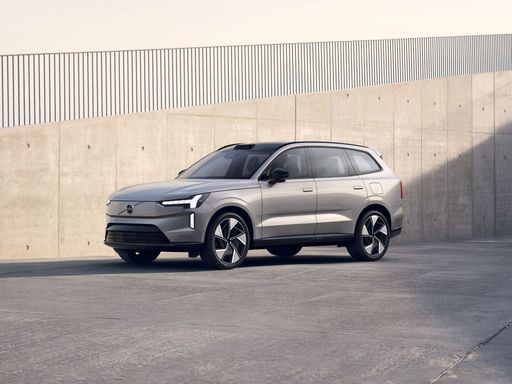
Volvo EX90
Audi Q6 e-tron
Audi Q6 e-tron føles som en moderne luksus-SUV skabt til elalderen, hvor skarpe linjer og et velkomponeret cockpit giver klart premiumindtryk. Den kombinerer raffineret kørekomfort med hurtig respons og intuitiv teknologi, så den både er vellykket på lange ture og elegant i byen — plus et strejf af køreglæde du ikke altid forventer fra en sofistikeret elektrisk Audi.
Detaljer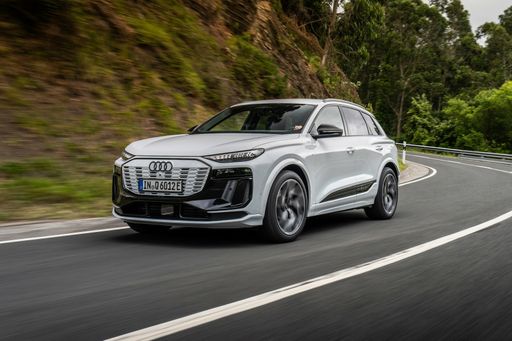
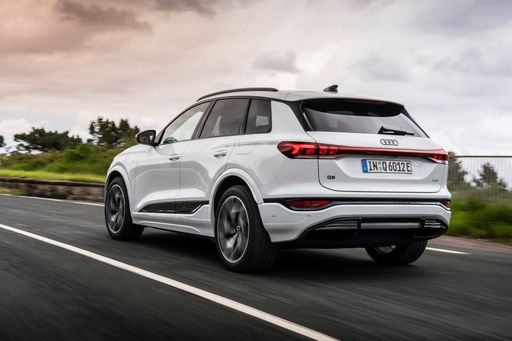
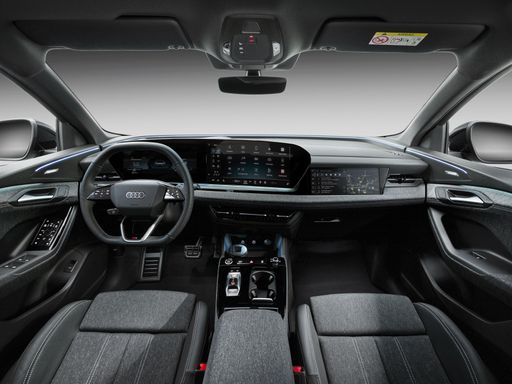
Volvo EX90
Volvo EX90 er en overdådig og yderst sikker elbil, der forener skandinavisk minimalisme med luksuriøs komfort og avancerede digitale løsninger, så den både føles moderne og tryg på vejen. For købere, der vil have plads, ro i sindet og en subtil status, leverer den en rummelig og fredfyldt køreoplevelse med et diskret glimt i øjet.
Detaljer
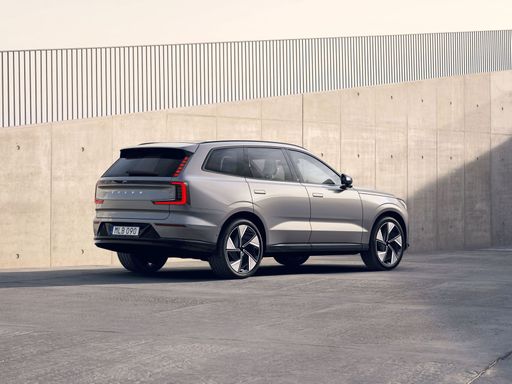
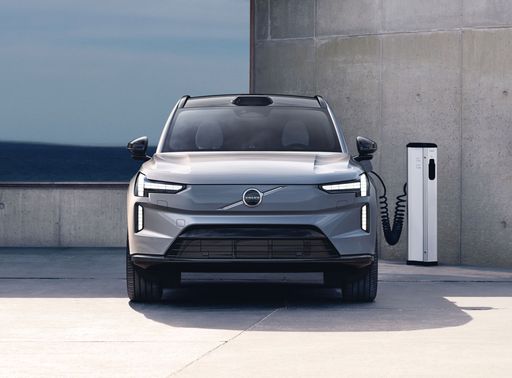
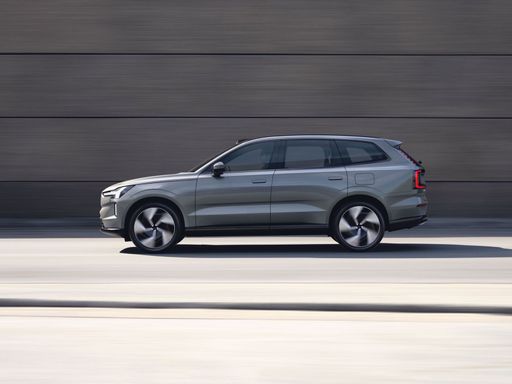
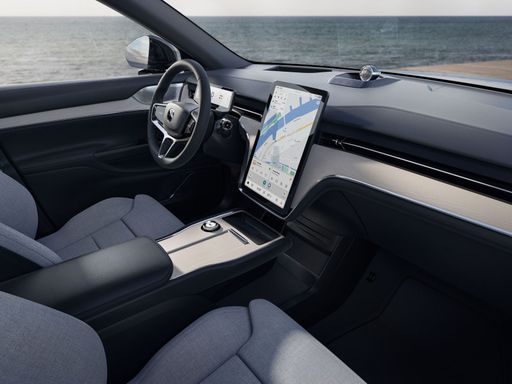
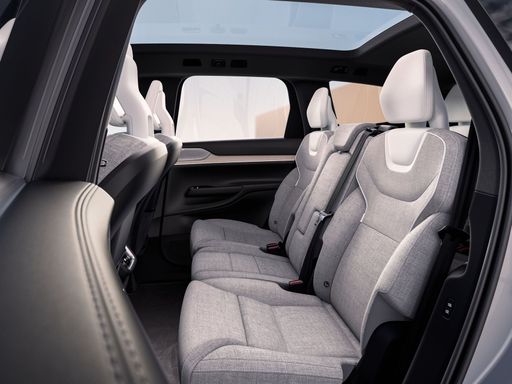
Omkostninger og forbrug |
|
|---|---|
|
Pris
497600 - 753800 kr.
|
Pris
673800 - 860300 kr.
|
|
Forbrug L/100km
-
|
Forbrug L/100km
-
|
|
Forbrug kWh/100km
15.6 - 18.4 kWh
|
Forbrug kWh/100km
17.8 - 19.3 kWh
|
|
Elektrisk rækkevidde
529 - 656 km
|
Elektrisk rækkevidde
570 - 620 km
|
|
Batterikapacitet
75.8 - 94.9 kWh
|
Batterikapacitet
88 - 102 kWh
|
|
co2
0 g/km
|
co2
0 g/km
|
|
Tankkapacitet
-
|
Tankkapacitet
-
|
Dimensioner og karrosseri |
|
|---|---|
|
Karrosseri
SUV
|
Karrosseri
SUV
|
|
Sæder
5
|
Sæder
6 - 7
|
|
Døre
5
|
Døre
5
|
|
Egenvægt
2200 - 2425 kg
|
Egenvægt
2556 - 2764 kg
|
|
Bagagerumskapacitet
499 - 526 L
|
Bagagerumskapacitet
324 L
|
|
Længde
4771 mm
|
Længde
5037 mm
|
|
Bredde
1939 - 1965 mm
|
Bredde
1964 mm
|
|
Højde
1665 - 1685 mm
|
Højde
1744 mm
|
|
Maksimal bagagerumskapacitet
1361 - 1529 L
|
Maksimal bagagerumskapacitet
2082 - 2135 L
|
|
Lastkapacitet
540 kg
|
Lastkapacitet
375 - 585 kg
|
Motor og ydeevne |
|
|---|---|
|
Motortype
Elektrisk
|
Motortype
Elektrisk
|
|
Transmission
Automatisk
|
Transmission
Automatisk
|
|
Transmissionsdetaljer
Reduktionsgear
|
Transmissionsdetaljer
Reduktionsgear
|
|
Drivtype
Baghjulstræk, Firehjulstræk
|
Drivtype
Baghjulstræk, Firehjulstræk
|
|
Effekt HK
252 - 490 HK
|
Effekt HK
333 - 680 HK
|
|
Acceleration 0-100 km/t
4.4 - 7.6 s
|
Acceleration 0-100 km/t
4.2 - 6.8 s
|
|
Maks. hastighed
210 - 230 km/h
|
Maks. hastighed
180 km/h
|
|
Moment
450 - 855 Nm
|
Moment
480 - 870 Nm
|
|
Antal cylindre
-
|
Antal cylindre
-
|
|
Effekt kW
185 - 360 kW
|
Effekt kW
245 - 500 kW
|
|
Motorstørrelse
-
|
Motorstørrelse
-
|
Generelt |
|
|---|---|
|
Modelår
2024 - 2025
|
Modelår
2025
|
|
CO2-effektivitetsklasse
A
|
CO2-effektivitetsklasse
A
|
|
Mærke
Audi
|
Mærke
Volvo
|
Hvilke drivmuligheder tilbyder Audi Q6 e-tron?
Tilgængelig som Baghjulstræk eller Firehjulstræk.
